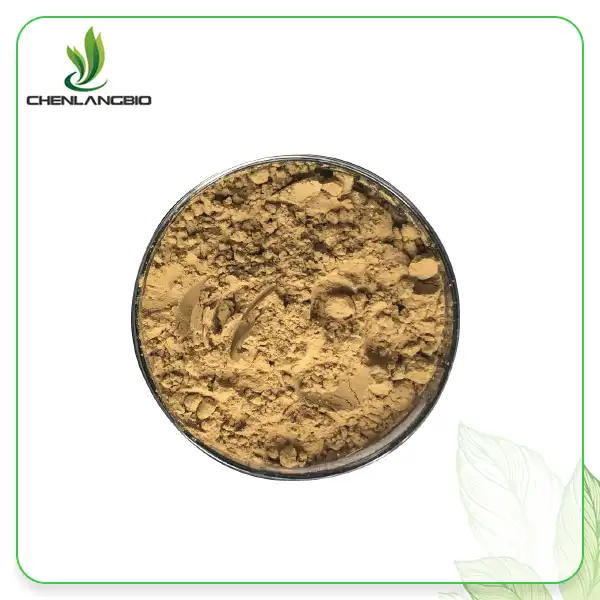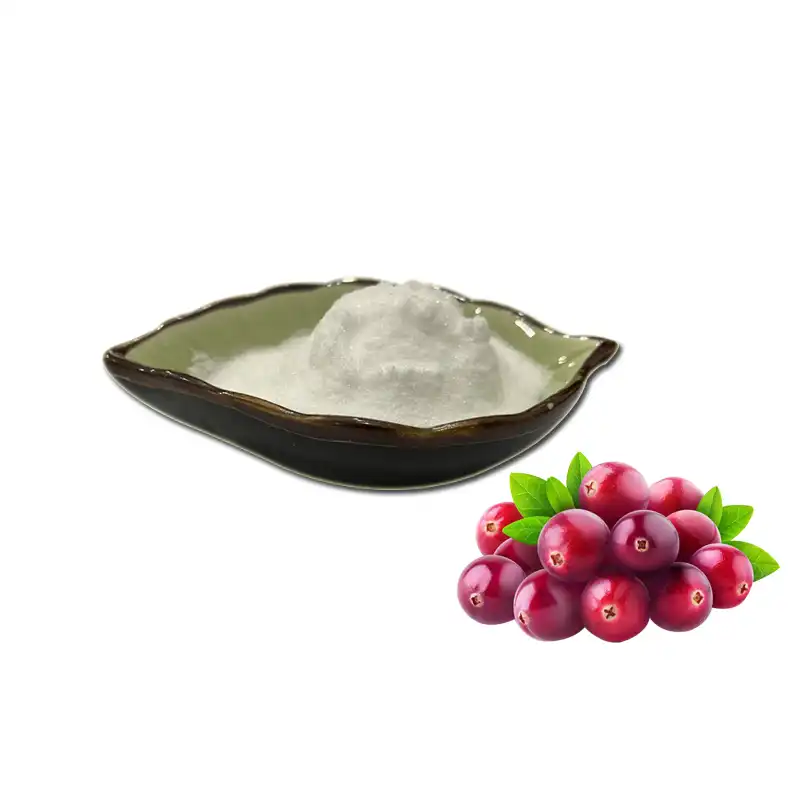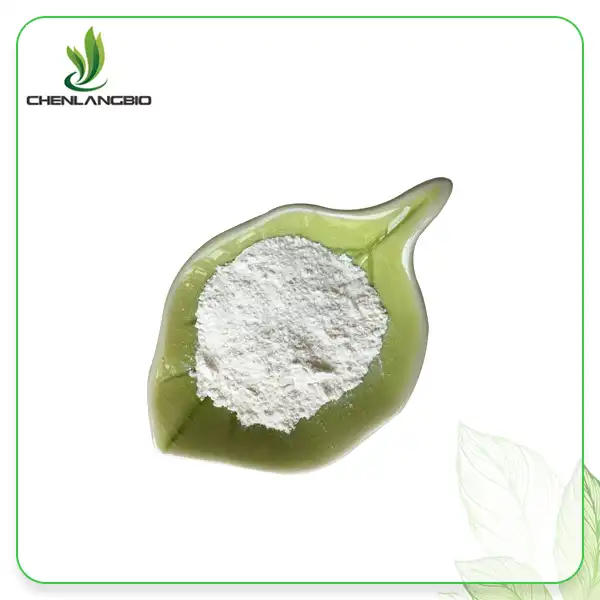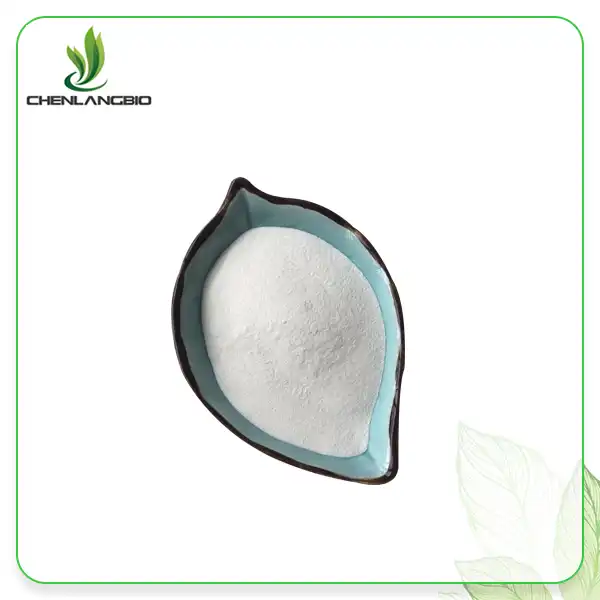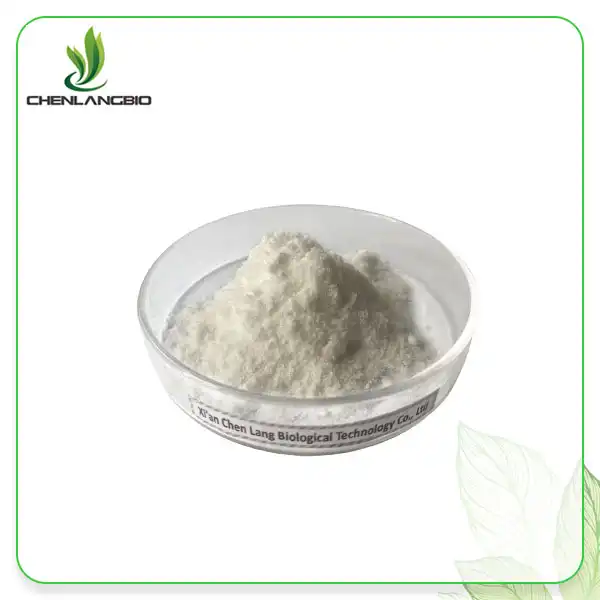What is the Function of Ergothioneine
2024-09-26 15:49:31
Ergothioneine, a novel and strong cell reinforcement, has drawn in the consideration of established researchers for its potential medical advantages. This naturally occurring amino acid, which is found in some animals and some fungi, is necessary for cell protection and overall body health. The significance of ergothioneine for human health becomes increasingly apparent as more research demonstrates its various capabilities. Ergothioneine gives a captivating look into the perplexing universe of cell protection instruments and their effect on our wellbeing, from its possible neuroprotective properties to its ability to battle oxidative pressure.

The Antioxidant Power of Ergothioneine
Understanding Free Radicals and Oxidative Stress
The resistant framework relies on a variety of types of cells, many of which are immune to oxidative stress. Ergothioneine's cancer-prevention and mitigating properties may increase resistance by directing incendiary reactions and preventing damage from insusceptible cells.
Ergothioneine may assist the body in fighting infections and maintaining overall health by enhancing the function of specific immune cells, according to some studies. Ergothioneine's potential therapeutic benefits are increased by its capacity to support the secure framework.
Ergothioneine as a Potent Antioxidant
There are many different kinds of cells that make up the resistant framework, and many of them are immune to oxidative stress. By directing incendiary reactions and preventing damage from insusceptible cells, ergothioneine's cancer-prevention and mitigating properties may increase resistance.
Some studies suggest that by enhancing the function of particular immune cells, ergothioneine may help the body fight infections and maintain overall health. Ergothioneine's potential therapeutic benefits are increased by its capacity to support the secure framework.
Cellular Distribution and Accumulation
One of the most intriguing properties of ergothioneine is its unique distribution throughout the body. OCTN1 (natural cation carrier novel sort 1) is an unmistakable carrier that effectively delivers ergothioneine into cells. This is in contrast to a number of other different cell reinforcements. This transporter is particularly abundant in the liver, kidneys, and central nervous system, all of which are susceptible to oxidative stress.
Due to the presence of this particular transporter, it is believed that ergothioneine plays a crucial role in protecting these delicate tissues from oxidative damage. The body's capacity to accumulate and store ergothioneine emphasizes its significance to cell health.
Ergothioneine's Role in Cellular Protection
Mitochondrial Support
The development of energy is subject to the mitochondria, which are alluded to as the "rockin' rollers" of the cell. Notwithstanding, they likewise produce an enormous number of freedom supporter progressives. Ergothioneine, which is required to safeguard these vital organelles from oxidative damage, has been found to accumulate in mitochondria.
Ergothioneine safeguards cell energy production and general health by defending mitochondrial capability. In tissues that require a ton of energy, similar to the heart and mind, this security of mitochondria is particularly significant.
DNA Protection
Our phones' inherited material is constantly at risk from various sources of harm, including oxidative tension. Ergothioneine has demonstrated that it can shield DNA from oxidative damage, thereby preserving genomic strength and possibly lowering the likelihood of mutation.
Because DNA damage is linked to a variety of age-related diseases and the development of cancer, Ergothioneine's DNA-protective function may have far-reaching effects on overall health.
Protein and Lipid Preservation
In addition to DNA, proteins and lipids are also impacted by oxidative damage. It has been shown that ergothioneine jelly the construction and capability of these fundamental biomolecules by safeguarding them from oxidation.
Ergothioneine contributes to overall cellular health by maintaining the integrity of proteins and lipids. It likewise can possibly assist with forestalling a large number of sicknesses that are connected to the oxidation of proteins and lipids, as cardiovascular illnesses and neurodegenerative problems.
Potential Health Benefits of Ergothioneine
Neuroprotective Properties
The brain is particularly susceptible to oxidative stress because of its high lipid content and high energy requirements. Ergothioneine's capacity to cross the blood-brain barrier and accumulate in brain tissues indicates that neuroprotection relies on it.
By reducing oxidative stress and inflammation in the brain, ergothioneine has been shown to protect against neurodegenerative diseases like Alzheimer's and Parkinson's. Ergothioneine's ability to prevent age-related neurological decline and preserve cognitive function has sparked interest as a potential treatment for neurological disorders.
Cardiovascular Health
Oxidative pressure has a significant impact on cardiovascular disease's course and progression. The anti-cancer properties of ergothioneine may prevent oxidative damage to the heart and veins, which may improve cardiovascular health.
As per research, ergothioneine may lessen the gamble of atherosclerosis by forestalling the oxidation of low-thickness lipoprotein (LDL) cholesterol, a vital figure the development of vein plaques. Furthermore, its quieting impacts might work on cardiovascular wellbeing by decreasing vascular disturbance.
Immune System Support
The resistant framework relies on a variety of types of cells, many of which are immune to oxidative stress. Ergothioneine's cancer-prevention and mitigating properties may increase resistance by directing incendiary reactions and preventing damage from insusceptible cells.
Some studies suggest that by enhancing the function of particular immune cells, ergothioneine may help the body fight infections and maintain overall health. The capacity of ergothioneine to support the secure framework increases its potential medical benefits.
Conclusion
Ergothioneine's multifaceted functions in cellular protection and potential health benefits make it a fascinating subject of ongoing research. As we continue to uncover the full spectrum of ergothioneine's roles in human health, its importance as a potent antioxidant and cellular protector becomes increasingly clear. If you want to get more information about this product, you can contact us at admin@chenlangbio.com.
References
1. Paul, B. D., & Snyder, S. H. (2010). The unusual amino acid L-ergothioneine is a physiologic cytoprotectant. Cell Death & Differentiation, 17(7), 1134-1140.
2. Cheah, I. K., & Halliwell, B. (2012). Ergothioneine; antioxidant potential, physiological function and role in disease. Biochimica et Biophysica Acta (BBA)-Molecular Basis of Disease, 1822(5), 784-793.
3. Halliwell, B., Cheah, I. K., & Tang, R. M. (2018). Ergothioneine–a diet‐derived antioxidant with therapeutic potential. FEBS letters, 592(20), 3357-3366.
4. Ames, B. N. (2018). Prolonging healthy aging: Longevity vitamins and proteins. Proceedings of the National Academy of Sciences, 115(43), 10836-10844.
5. Cheah, I. K., & Halliwell, B. (2021). Could ergothioneine aid in the treatment of coronavirus patients? Antioxidants, 10(1), 61.
6. Kerley, R. N., McCarthy, C., Kell, D. B., & Kenny, L. C. (2018). The potential therapeutic effects of ergothioneine in pre-eclampsia. Free Radical Biology and Medicine, 117, 145-157.
Send Inquiry
Related Industry Knowledge
- Are There Any Side Effects of Cactus Extract Powder?
- Is Pyrrolidinyl Diaminopyrimidine Oxide Effective Against Hair Loss?
- Kola Nut Extract Powder for Weight Management
- What is Centella Asiatica Extract Good for
- Guide to Sodium Methylesculetin Acetate in Dietary Supplements
- How Strong is Ascorbyl Glucoside? Benefits and Uses
- What Is Lufenuron Used For
- What is Turkesterone Powder? The Newest Supplement In the Whole Market Improve Immunity
- Argireline Powder Supplier
- Magnolol Powder for Acne




